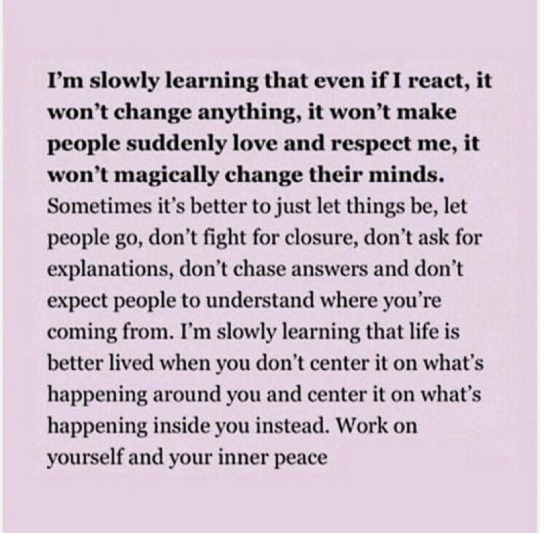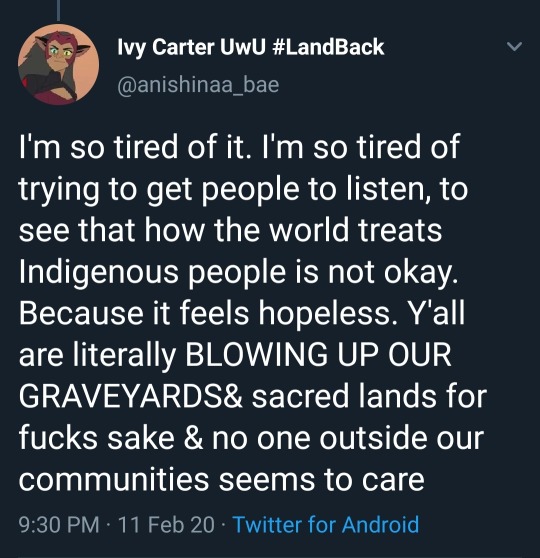Photo


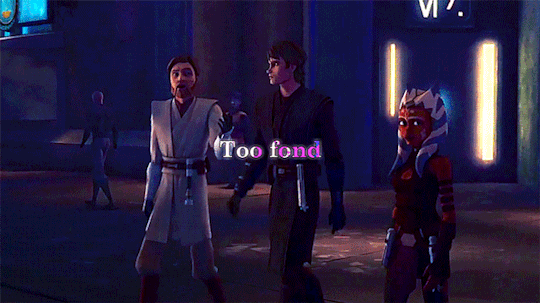


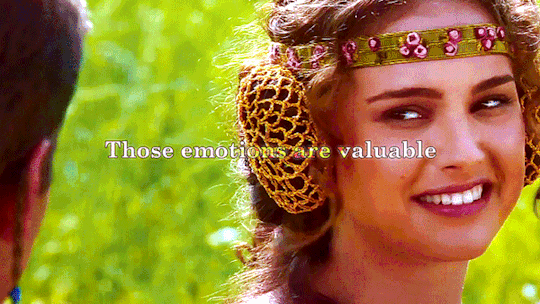

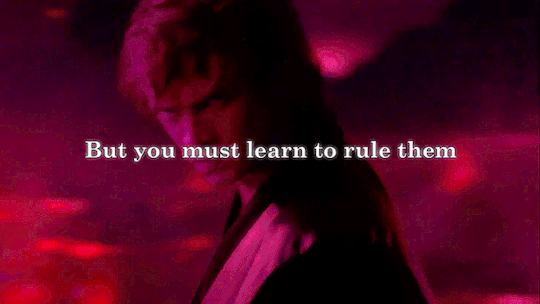
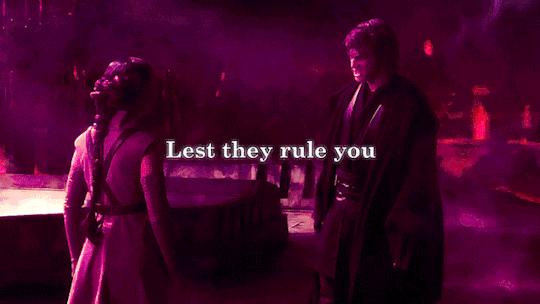
You must not grow too attached, too fond, too in love with life as it is. Those emotions are valuable and should not be suppressed…. But you must learn to rule them, Padawan, lest they rule you.
― Depa Billaba (Kanan: The Last Padawan)
2K notes
·
View notes
Text
what she says: i’m fine
what she means: the Entire Point ™ of the original star wars trilogy was that Luke Skywalker, the truest Jedi there ever was, did NOT follow the ways of the old Jedi and made his own way. Where his masters told him not to help his friends, not to be attached, not to try and save his father, he DID all of those things, all while staying true to himself and to the light side, using that attachment and love and care to do so. Pop culture and casual Star Wars fans all seem to ignore this fact and idealize the old Jedi ways, even while hating on the prequels, and in doing this they fail to understand the entire moral of the original trilogy. Luke Skywalker is one of the best characters in film history and him and his character arc and significance being so widely misunderstood is just an utter tragedy
44K notes
·
View notes
Text


In 1847 the Choctaw Nation - themselves victims of huge suffering - decided to gather what funds they could and send aid to help the Irish during the Famine. Navajo and Hopi families are now struggling with the fight against COVID-19. Donate to help here: gofundme.com/f/NHFC19Relief
2K notes
·
View notes
Photo
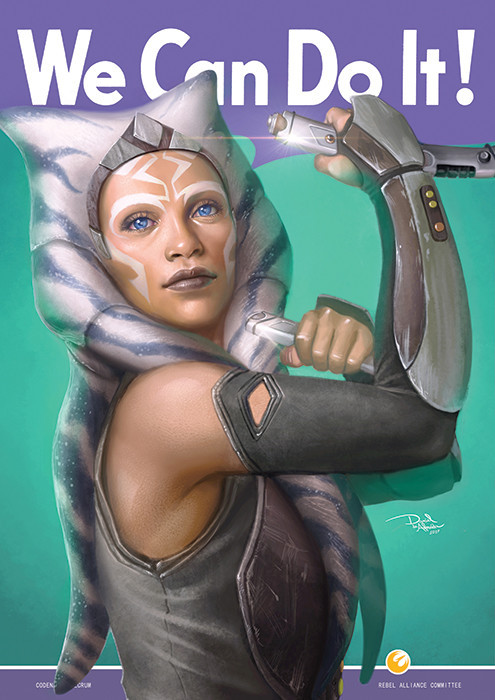
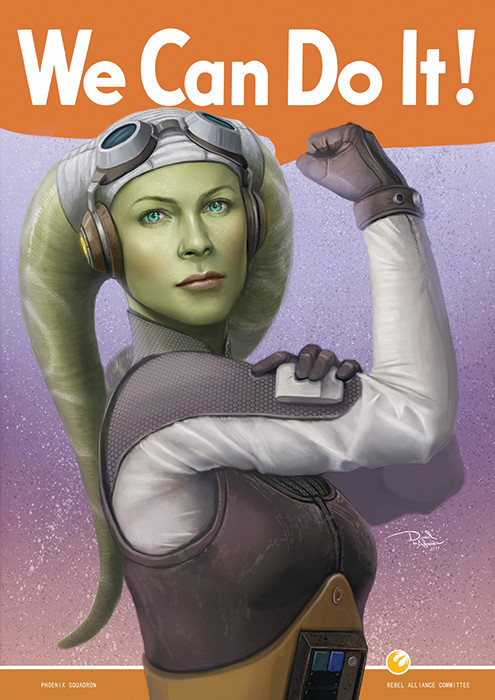
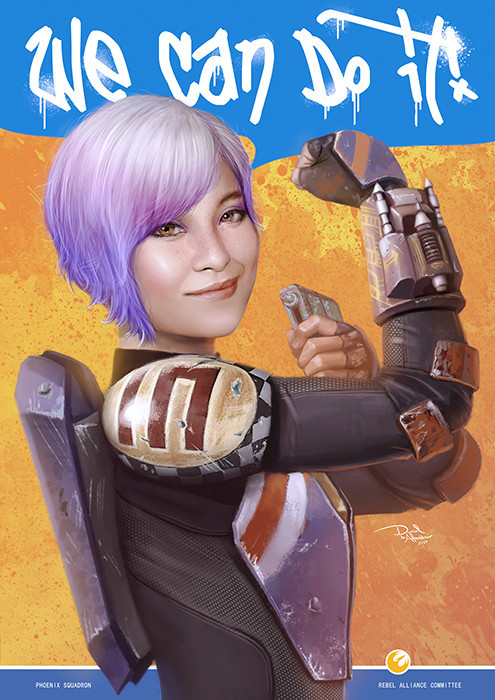
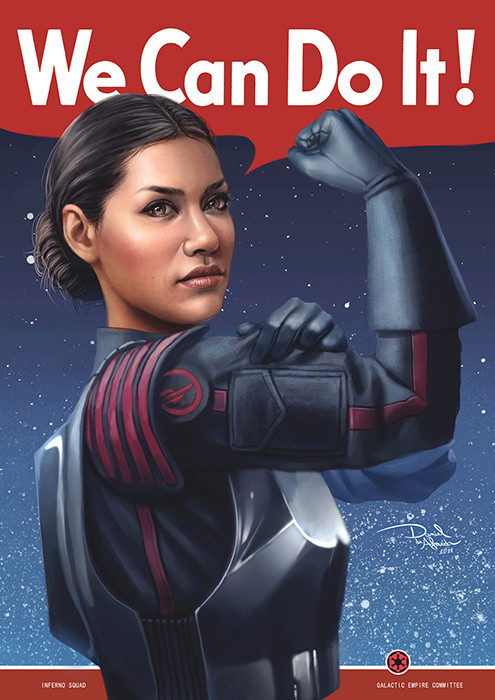
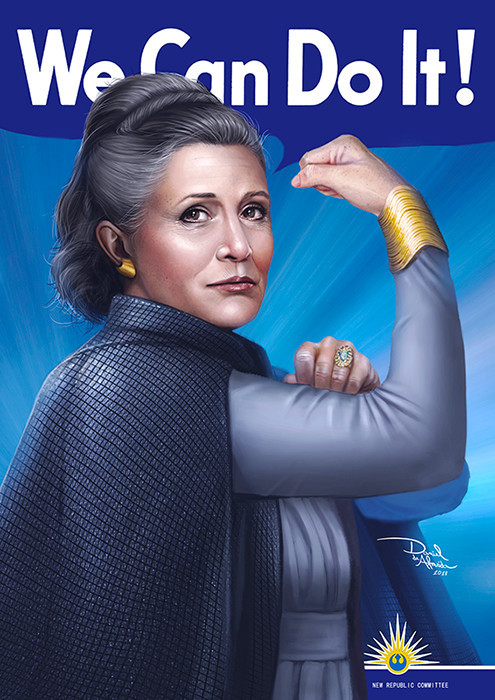
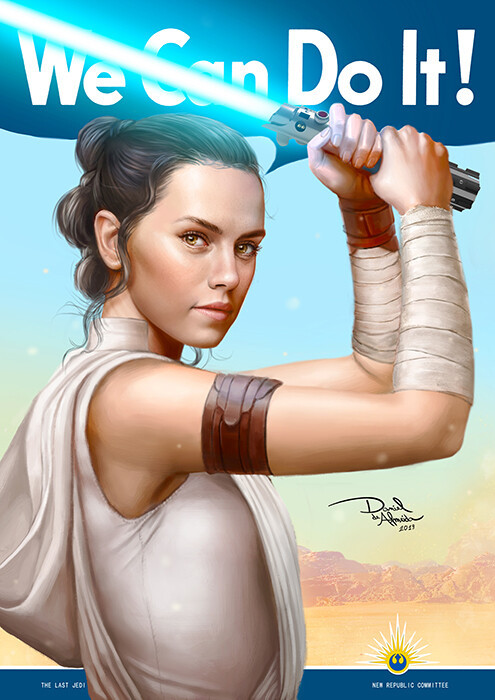
We Can Do It! Ahsoka | Hera | Iden | Sabine | Leia | Rey // Artist: Daniel de Almeida e Silva @ ArtStation
1K notes
·
View notes
Photo
But even more important than that is that in the end he chose to face those harsh truths, realities, and consequences of his actions instead of hide from them. That is a decision that was made at the exact time when it was at the climax of how hard it could have been.
If Anakin had chosen to look at what he'd done after he cut off Mace's hands, he would have had a difficult time forgiving himself, but he waited.
If he had chosen to reflect on his actions after the assault on the temple he would have looked back to see the jedi and children that fell to his blade AND Mace's hands, but he waited.
If he had chosen to repent of his choices after he "killed" Padme*, he would have seen the love in her eyes as he choked her to death, knowing she was carrying his offspring, seen the fallen children and jedi, and Mace's hands, but he waited.
23 years. 23 years of murder, torture, genocide, destruction, terrorism, all of it something that Anakin Skywalker would have been horrified to see. But in that moment, 23 years later, Anakin was brave and wise enough to face and accept the full weight of every action, regret it, decide he didn't want to be that person anymore, and then forgive himself enough that he became one with the force. He did all of this at the most difficult time he could have. After 23 years of being someone he hated, he chose to forgive himself and be the best person he can be with whatever time he had left.
Finally, if a man can forgive himself for being a monster like that and become a hero, why are you still holding on to that shame you feel every time you think something negatively about yourself? For someone who is ashamed of themselves, not just feeling guilty, but truly ashamed. (Guilty is "I made a mistake, I shouldn't have done that." - Ashamed is "Of course I did that, I'm a terrible person.") the first thought that usually answers back is "Because I'm not worth it." Or "Because I don't deserve it." First of all, that's not true, secondly, Vader deserved it a lot less than you do, and even he got to forgive himself. Forgive yourself. Whatever is holding you back from being the hero you want to be, let it go, and if you need help reach out. Reach out to family, friends, counselors, anyone that you know will have a positive influence on you, and let them help you learn to forgive. If you don't have anyone you feel you can talk to, my inbox is always open, and so are my ears.
You are worth it. You can do it.
*Note: "Lost the Will to Live" is bullshit and will never be a medical diagnosis.
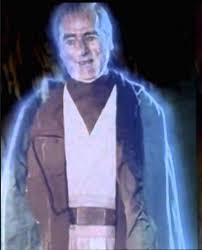
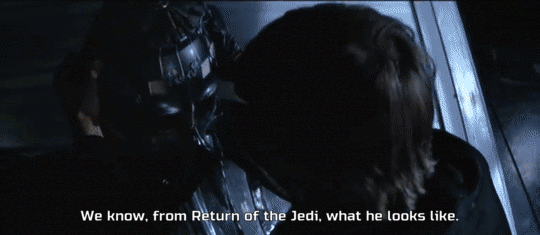
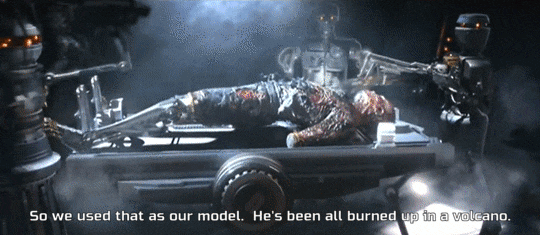
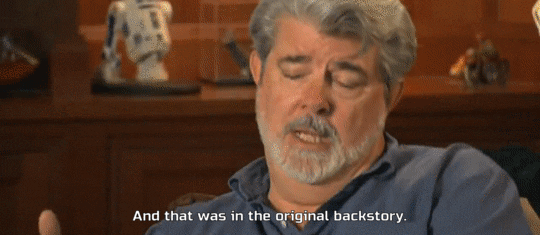

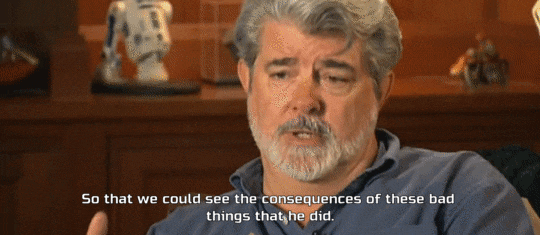


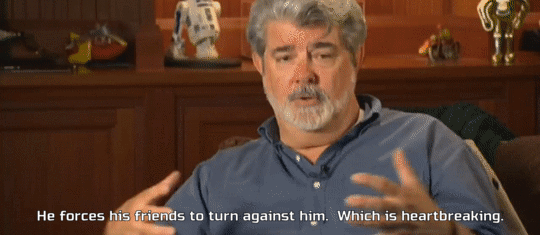
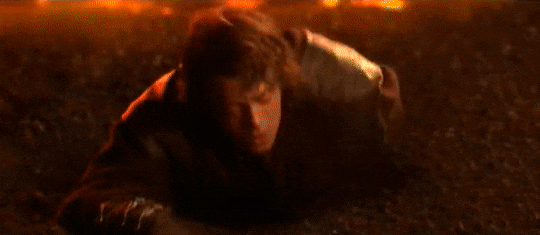
Star Wars Episode III | The Chosen One Featurette
I found this whole section of the featurette fascinating because of the narrative connections being drawn and the overarching story elements that are linked together.
George Lucas talks about how seeing the physical process of Anakin becoming Darth Vader is about (narrative) consequences for these bad things he did, which is interspersed with cuts of Padme telling him he’s going down this terrible path, that it’s not about Obi-Wan, it’s about what he’s done, with Obi-Wan telling him that he’d believed in him.
Then it cuts back to George saying, “He forces his friends to turn against him. Which is heartbreaking.”
That the bad things Anakin does isn’t just the literal murder of children and the murder of the Jedi and the undercutting of democracy, but on a more thematic level, he’s forced his loved ones into these terrible positions. That both Obi-Wan and Padme love him, that the Jedi cared about him, but he forced their hand, they had to act against him, because of the things he’d done and because of what he planned to keep doing.
I’ve been yelling about it for ages and I’m going to keep yelling about it because it breaks my heart, too, that Anakin can be so full of good, he can be a victim of a really shitty childhood, he can have understandable reasons for why he didn’t trust the system and wanted to circumvent it instead of bettering it, for why he let his fears consume him instead of facing them.
But at the end of the day the bigger narrative point is–Anakin did terrible things. He forced his friends to turn against him. Darth Vader’s suit isn’t a literal punishment, but a narrative consequence of the bad things Anakin did. Straight from George Lucas himself.
4K notes
·
View notes
Text
A TAOIST PARABLE
During a time of great drought, a Taoist master was asked by members of a village if he could help bring rain to their dry fields. They confessed trying many other approaches before reaching out to him, but with no success.
The master agreed to come and asked for a small hut with a garden that he could tend. For three days, he tended the garden, performing no special rituals or asking anything further from the villagers. On the fourth day, rain began to fall on the parched earth. When asked how he had achieved such a miracle, the master answered that he was not responsible for the rain. However, he explained, when he came to the village, he had sensed disharmony within himself. Each day, as he tended the garden, he returned a little more to himself. When he returned to balance, the rain came naturally.
I have heard that this was one of psychologist Carl Jung’s favorite stories, told to him by Richard Wilhelm, translator of the Chinese divination text, I Ching: Book of Changes. Jung believed Taoist beliefs mirrored his own understanding that what we call personal consciousness is only a partial perception of a greater whole. There are ways to fling open the mind, connecting us with a collective unconscious, allowing us access to larger universal rhythms. And from this fruitful entanglement, parallel events can arise, such as what happened between the Taoist master and the rain falling.
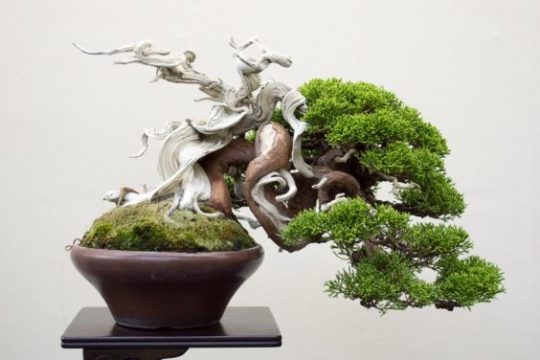
Jung would later call these seeming coincidences synchronicity, a psychological principle that treats the inner attitude of the person as inseparable from events taking place in the world. Jung, however, was not suggesting or equating synchronicity with causality. The Taoist master did not cause the rain to fall. Rather, Jung believed there were parallel processes in which outer events mirrored psychic activity. He was struck by Wilhelm’s insight that tao, normally translated as the way or path, might be better understood as meaning. Synchronicity could be understood as coincidences threaded together by meaning, a way of knowing that was potentially as impactful as Western concepts of causality.
We all have some intuition of a thin veil separating us from a larger universal consciousness. Jung was not alone in believing this veil could be lifted. Philosopher and novelist Colin Wilson wrote of a “subconscious mind” that becomes numb, “like an arm upon which I have been lying in my sleep, and which has become completely dead and feelingless.” The task is to restore circulation between the subconscious mind and the flow of life. In doing so, we awaken a feeling connection with awe and mystery. And in awakening to this possibility, a fundamental transformation takes place. No longer passive subjects at the mercy of events, we become active participants translating meaning into life.
Does the parable of the Taoist master represent a symbol of the awakened mind, a person who has restored circulation between himself and the Universe? And if this is the case, then we must consider anew the synchronistic attitude toward life. When we restore balance and meaning in ourselves, we seed the world around us with hope and purpose.
51 notes
·
View notes
Text
Reblog if it's okay for anybody to message you if they're feeling lonely during self isolation. Let's get through this together!
36K notes
·
View notes
Photo
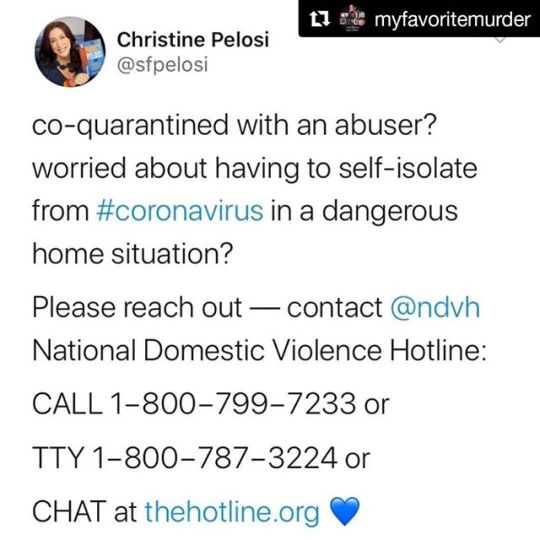
— view on Instagram https://ift.tt/39UbApi
123K notes
·
View notes
Text
Ravenclaw: I feel like it’s funny.
Slytherin: How so?
Ravenclaw: That I’ve got this thing I was so upset happened and it ends up being useful to someone else.
Slytherin: I feel like that’s how it’s supposed to be. Like… You go through shit, get hurt, hurt others, make mistakes, blah blah blah, and all of it… all of that living that you did, good or bad, you use to help save others from the same fate. Or help them through that same thing. So maybe… They can come out better and wiser than you did.
25 notes
·
View notes
Text
if you need more proof of how much of an idiot i am, just know that i stayed up till o-dark-thirty last night making blueprints and cutaway diagrams of the Jedi Temple in microsoft excel
2K notes
·
View notes
Text
A Redeemer Joins The Collective

Any warrior can kill. But it takes a special sort of soul to finish a battle and then extend a hand in mercy. These individuals know that the greatest thing one can do is to forgive, and they strive to live by this principle. To them, an enemy redeemed is far better than an enemy slain, and they will do their best to make this redemption possible. Be wary however, that you do not mistake their kindness for weakness.
Everyone, please welcome @weare-redeemer to the Collective!
128 notes
·
View notes
Photo
I'm reposting this because I feel it is a very important lesson. I was able to learn much from it, and I hope others can too.
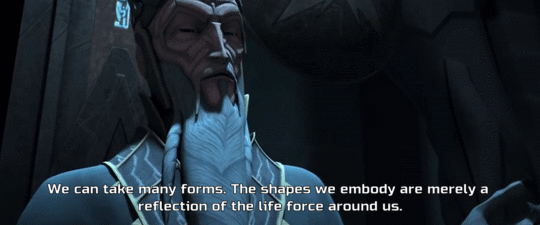

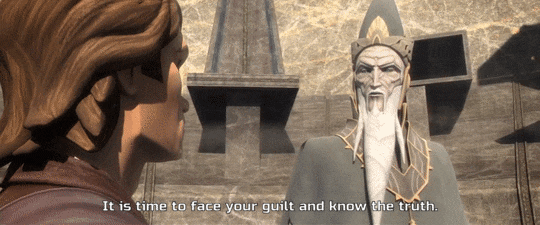
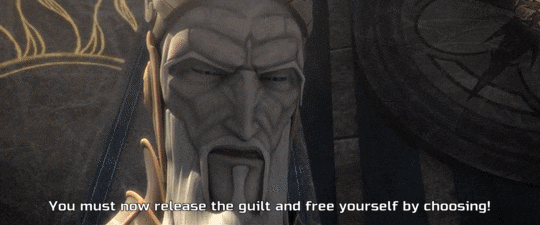


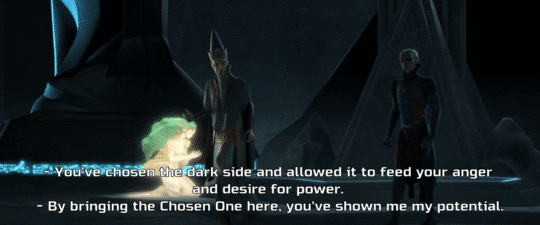
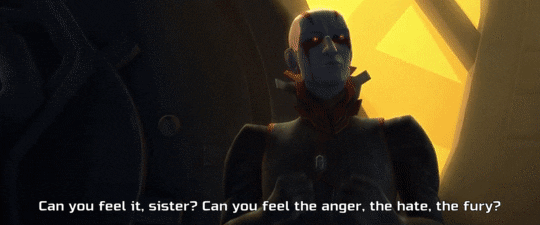


SO WHAT THE HELL IS THE MORTIS ARC?
After about the second time I watched this arc, my thoughts ran towards the idea this was Star Wars in a microcosm, the story of Anakin Skywalker’s fall in miniature form, as so many things in Star Wars basically come down to being about Anakin, whether literally about him or an echo and rhyme of the story that he is the very center of. Which I think still has a good amount of merit to it, but in the rewatching of this arc yet again, there’s a bigger arc that jumped out at me so much more clearly, now that I’ve spent more time with the structure and lore of Star Wars.
That this arc is entirely a metaphorical extension of Anakin’s internal struggle between the light and the dark.
It’s a manifestation of the Chosen One struggling to choose between good and evil.
Now, to be clear, the Father and the Son and the Daughter are all real beings that really existed, Dave Filoni has said that pretty clearly on podcast interviews, as well as said more than once that he and Christian Taylor specifically decided not to answer What The Fuck Was That!? about this arc, because they felt it would rob the viewers of speculation about it, as well as the questions that you’re meant to ask after watching it.
There are so many, many moments in this arc that are call-backs to important moments in Anakin’s life, major events and choices he makes along his path in life, as well as commentary from the Father and the Son and the Daughter about who and what they are, what influences them.
In “Overlords”, Obi-Wan and Anakin and Ahsoka find themselves stranded on a mysterious planet, immediately approached by the Daughter and asked if he is indeed the Chosen One. All three of the Mortis lords are intensely interested in Anakin, each of them try to protect him, seduce him, or just try to understand if he really is the Chosen One.
While he’s staying in the Father’s sanctuary, Anakin has a vision of his mother, which he’s deeply affected by, but realizes it’s not really her. He storms out of the room and goes to confront the Father, thinking that these are Sith Lords. But the Father says, no, we’re not Sith or Jedi, we’re bigger than that, like you are.
His explanation is: “We can take many forms. The shapes we embody are merely a reflection of the life force around us.”
In other words, they take the shape that Anakin’s presence imbues them with. They’re real on their own, but their forms here are shaped by the Chosen One.

But the Chosen One is a myth, right? Well, the Father would very much like to know. So, the entire rest of the episode is about hurtling the characters–hurtling Anakin, as the Chosen One–towards a test.
A test that isn’t just about “hey, are you the Chosen One or not?”, but almost every single time the Father says what he has to do–face your guilt and know the truth, you have to release the guilt and choose, only you can do this.
It’s about trying to make Anakin look within himself, look at his guilt and fear and pain, and acknowledge them, face them, and choose whether he will embrace them or let go of them.
Which is E X A C T L Y how the Force works, how the Jedi have always said the Force works. It’s Luke having to face his fears in the cave on Dagobah, it’s the Jedi younglings having to face their fears on Ilum, it’s Ezra having to face his fears in the Lothal Jedi Temple, it’s Rey having to face her fears in the cave on Ahch-To. [x][x]
FACE YOUR FEARS, YOUR GUILT, YOUR ANGER. FACE YOUR DARK SIDE.


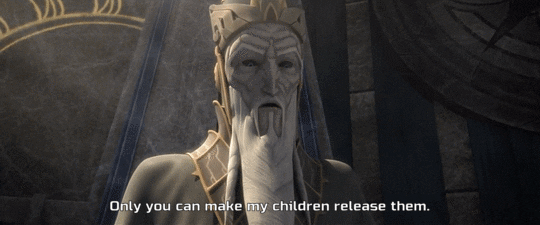


The planet is the Force and that’s how the Force works.
Anakin uses the Force to make the Daughter and Son let them go, but refuses to stay on Mortis (and, honestly, doesn’t really do any self-examination or releasing of his guilt, he hasn’t changed internally at all), so they try to leave, but they’re still trapped there.
Which is where “Altar of Mortis” picks up. Because Anakin is still giving shape to the manifestations of the Father, the Daughter, and the Son.

“You’ve chosen the dark side and allowed it to feed your anger and desire for power,” the Father says.
“By bringing the Chosen One here, you’ve shown me my potential,” the Son answers.
And then moments later, he kicks the Father down the stairs (because he’s HOLDING HIM BACK! by not dying fast enough) and screams:
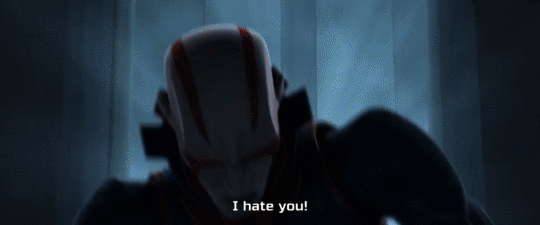
Even aside from time not being linear in Star Wars, we’ll see later that this trilogy of episodes is very aware of Revenge of the Sith and other important moments in Anakin’s life. This moment, screaming in rage, “I hate you!” cannot possibly not remind us of Anakin screaming the same thing at Obi-Wan in ROTS.
Which is yet another moment that’s about Anakin, just as so many other moments are about him, cool little moments of echoes and rhymes, that Star Wars likes to make references and homages to itself, but there are enough of them done with such clear purpose here that I don’t think it’s just Rule of Cool, but instead an intentional narrative purpose behind them.

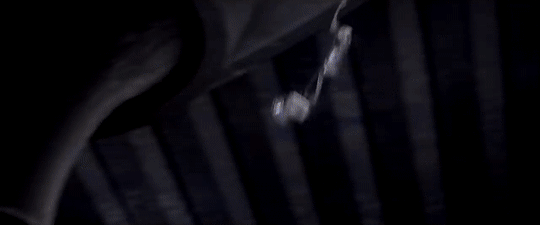


There are more, but those ones are the ones that really jumped out at me, important moments in Anakin’s story, ones that reflect his fall into the darkness. The moment he caught the saber and attacked Dooku as a choice he couldn’t take back (and was itself an important moment because it was a mirror to Luke’s choice to not kill Vader in ROTJ, even after cutting off his arm in a rage, as Anakin did to Dooku as well) and the moment he very much intended to kill Obi-Wan on the Death Star, these are classic moments that evoke our knowledge of Anakin’s path.
And what does all this do?
It further feeds what’s going on with the Mortis lords.
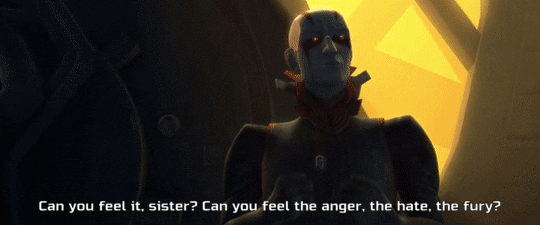
Everything pretty much goes pear-shaped at this point, Ahsoka dies, the Son accidentally stabs the Daughter instead of the Father–
Which, in and of itself is an interesting parallel to Anakin, his sister the only one he professes to truly love, he’s the one that winds up killing her, despite his intentions, but then we see he also very much loves the Father, he doesn’t want him to die, he’s distraught when it happens, even though he was the one who engineered it, just like Anakin being the thing that really breaks Padme’s heart/causes her death even without his intentions to do so, just like Anakin in “There is Another” in From a Certain Point of View where his heart explodes with loneliness after Obi-Wan dies, so powerfully that Yoda feels it from literally all the way on the other side of the galaxy.
–but Ahsoka is saved through Anakin being the one to channel the last of the Daughter’s energy into Ahsoka, while the Father guides him, the Son fucks off to who knows where, and “What the fuck do we do now?” knowing that the Son wants their ship to leave with.
This is where “Ghosts of Mortis” starts up, and the announcement furthers our themes:

“A great weight has been placed on Anakin’s shoulders, for it is now that he must face who he really is.”
Not just that he has a choice to make, about what to do about the Son or Mortis, but that this still has to be about discovering who he himself really is. Because Anakin has never yet really looked inside himself or faced his guilt and pain.
Which is when he runs into Qui-Gon’s ghost, as he’s trying to find the Son, and wham does it deliver on all of this:

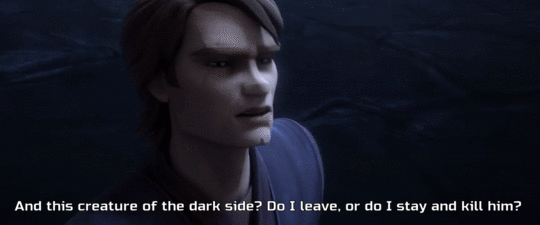

Qui-Gon’s words aren’t just “bring balance to the Force”, but specifically this is indicated to be done through facing his demons will he save the universe.
Anakin, sliding right by that point, asks if he should just kill the Son or just leave? And Qui-Gon’s answer is that Anakin’s not looking at this in the right way, that there’s another way to deal with this and it’s exactly the one that the Jedi have been teaching for as long as we’ve known them, that the Force has constantly been throwing into the paths of the Jedi, because it’s so necessary to becoming a Jedi: Face the dark parts of you and work past them.
This is why Qui-Gon’s words are so important–it’s not just that this is an echo of Empire Strikes Back where Luke has to face the inner demon of the specter of Darth Vader (it wasn’t an external threat in that cave on Dagobah, that was all about “what you bring with you”, as Yoda says, that was all about Luke’s fears surrounding him), that it’s not just that Qui-Gon says Anakin has to go to a place strong in the dark side but he has to remember his training.
Qui-Gon’s ghost visited Obi-Wan earlier, asking, “Have you trained the boy as I asked?” And now he says, “Remember your training.” because this is what Jedi do, this is what they train themselves for, and why Qui-Gon says it to Anakin here. This is what you’ve been taught to do–go to the dark place and face your demon. That’s the Force, that’s how it works.
And further to that, how the Force works, how Star Wars works, is that it’s about choice in those moments. When you’re at the crossroads, it has to be your own choice. You can ask others for advice and guidance, those things can be incredibly important, but at the end of the day, Star Wars is about “only Anakin can choose”.

So, Anakin does indeed go to face the Son in the place strong in the dark and the Son forces him to look within himself. To know himself.


He sees his future self and actions, he’s so distraught by them, that instead of being able to face them and pass through those fears, he’s consumed by them, he agrees to help the Son, falling to the dark side–poison yellow eyes of the fully embraced dark side and all–to try to avoid what’s coming.
The thing is, Anakin never really confronts his fears, demons, or guilt. He’s consumed by them instead. It happens because he’s trying to avoid it, but he still falls to the dark side all the same, because he listens to the Son dripping poison in his ear, because he sees an easier way out than the hard work of disciplining himself against the dark side (which George Lucas says is how you resist it, the only way to resist it), because the other way seems too impossible and too scary.
Anakin’s story has always been about how he can’t bear to look at himself and his choices and then make the choice–and stick to that choice–to do and be better. His story has always been about his fears ran rampant inside him because he didn’t want to let go of the feelings that made him “special”, he didn’t want to listen to the Jedi when they told him to get a grip, he wanted to listen to Palpatine who told him his feelings should be held onto instead of let go, that they made him special, made him better than those other Jedi, that his hate and rage and fear were justified in being held onto.
And that’s exactly what the Mortis arc is–a reflection and shape of Anakin’s story, that each of them were about the internal struggle he faced.
That Anakin didn’t make these choices in one bad day.
He made this choice over and over again.
When he chose to dig his fingers into his feelings and hold onto them, listening to Palpatine’s poisonous words.
When he chose to do a monstrous thing on Tatooine to the Tuskens and their children, but ignored what that said about him.
When he killed Dooku, unarmed and for the sake of revenge and his rage.
When he chose to maim Mace Windu and lead to his death, choosing Palpatine and the Empire instead of the Jedi and the Republic.
When he chose to attack the Jedi Temple and kill the younglings, leading him to feel unable to ever go back, that his actions had to be justified or else he murdered innocents for nothing.
When he chose to Force choke Padme, which lead to broken heart and her inability to live, after the terrible things he’d done.
When he chose to attack Obi-Wan again and again, despite being warned, leading him to the Darth Vader suit.
When he chose to refuse to accept the vision the Force put in his head in Dark Lord of the Sith, that Obi-Wan still would have forgiven him and helped him, when he rejected that and said, “No. [The dark side] is all there is.”
When he, again and again, chose to reject acknowledging that all these Jedi took different paths that he himself could have done (Jocasta Nu, Ferren Barr, Obi-Wan Kenobi, Eeth Koth, they were all paths he could have walked instead, even then).
When he chose to kill Obi-Wan, despite that Obi-Wan had stepped back and refused to fight anymore.
Anakin Skywalker desperately wanted to be good, there wouldn’t be a struggle or a story there worth telling if he weren’t. The ending of Return of the Jedi wouldn’t have the power and impact it did, if Anakin hadn’t had embers of goodness in him that couldn’t be snuffed out, no matter how hard he tried.
But I think Mortis is an arc that’s about manifesting the internal struggle, that these Force Lords took the shapes they did because they were feeding off him, as the Chosen One, the center of this massive web of destiny. And that’s why Anakin’s choices on Mortis, his struggles and the warnings he receives, are the same ones that are part of the bigger themes of Star Wars’ Skywalker Saga, and just what the hell was going on.
It was Anakin Skywalker’s struggle with the dark and the light–including that the dark won, with small pinpricks of hope and light left alive–literally made manifest and acted out with these players.
2K notes
·
View notes
Photo
I'm not sure about actual fighting styles but that position is a standard star wars back block. Not sure if that helps somehow or just unfixable flash and trash.

42K notes
·
View notes
Text
This is important. As jedi a part of that is maintaining our bodies, some of us, myself included have had bad experiences like these, and I just want to make sure that everyone knows this isn't normal, and you are capable of more than you have been told you are.
the older i get the weirder it is that not a single p.e. teacher in my entire school career was able to recognize the difference between “a child who doesn’t get enough exercise” and “a child with serious health problems impeding their ability to exercise in this particular way”
121K notes
·
View notes
